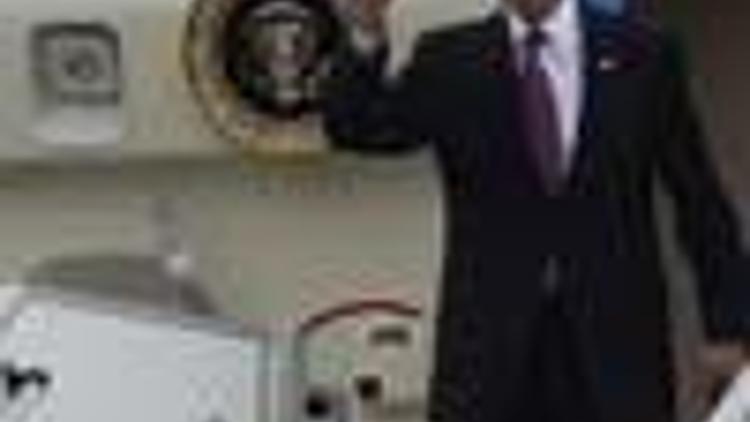US President Obama's official visit of a Rorschach test
Güncelleme Tarihi:

ANKARA - While some compare the latest wave of Obamania to a psychologist’s inkblot test, where patients inevitably see different things, others compare the clamor to the night before Christmas, as ruling and opposition politicians all queue for a chance on Santa’s knee. U.S. President Barack Obama had arrived in Ankara late on Sunday.
U.S. President Barack Obama's visit, address to Parliament and participation in the Alliance of Civilizations is fast becoming akin to an exercise of the famous inkblot test developed by psychiatrist Hermann Rorschach: everybody sees, or wants to see, something else in the flurry of meetings that will begin on Monday.
Obama’s decision to pay one of his early foreign visits to Turkey has been deemed symbolic and strategic as many political observers view the visit as an indication of the importance the new U.S. administration attaches to Turkey and Obama’s good will to improve dialogue with Turkey. In his two-day visit, Obama will also meet today with Deniz Baykal of the Republican People’s Party, or CHP, then Devlet Bahçeli of the Nationalist Movement Party, or MHP, followed by Ahmet Türk of the Democratic Society Party, or DTP. He will meet with each leader for five minutes. �
Obama’s visit implies an opportunity for both countries to exchange messages on critical topics. The visit will also pave the way for Turkey’s opposition leaders and different segments of society to raise their expectations and concerns over issues they deemed problematic, including the Kurdish issue.
The DTP is readying to raise their "democratic autonomy" demand to solve the country’s Kurdish question, whereas the CHP is likely to express their uneasiness with the description of "moderate Islam" attributed to Turkey by the former U.S. administration. And businessmen want refreshed talks on building qualified industrial zones to be able to increase custom-free trade with the United States.
Selehattin Demirtaş of the DTP said they planned to convey a dossier involving a series of proposals, including their demand of "democratic autonomy" for the Southeast in a bid to solve the country’s Kurdish problem. He said they hoped Obama would contribute to the solution of the Kurdish problem in Turkey. He also said Obama’s meeting with DTP leader Türk was an indication of Obama viewing the DTP as a party as the peaceful solution to the problem. The DTP will emphasize in the file that the Kurdish problem could be solved through greater democracy within Turkey’s unitary structure as well as strengthening local administrations and bringing constitutional safeguards to the rights of Kurds.
Uneasiness with the term "moderate Islam"
The CHP plans to express its uneasiness with the "moderate Islam" description attributed to Turkey by the former George Bush administration, stating their expectation that Obama’s administration will abandon such an understanding. Bahçeli is expected to say that Turkey attached great importance to the fight with the outlawed Kurdistan Workers’ Party, or PKK, expressing their wish that Turkey’s allies should similarly carry out their responsibilities in the issue. The MHP agreed to meet with Obama on the grounds that the meetings took place individually between Obama and the political party leaders.
Businessmen, meanwhile, want refreshed talks on building qualified industrial zones to be able to increase customs-free trade to the United States. Speaking to daily Hürriyet yesterday, former Chairman of the Turkish Clothing Manufacturers Association, or TGSD, and businessman Umut Oran said a qualified industrial zone could be established in the southeastern region of the country in a bid to improve development in the region and increase exports to the United States.
The project will also draw tourists to the region, according to Oran. Ali Balkız, the chairman of the Alevi Bektashi Federation, remains among participants who have been invited to the special session in Parliament to listen to Obama’s address. He said they already conveyed their demands on the problems concerning Turkey’s Alevi population to the Turkish government and that the problem was a domestic issue to be solved within the country. The invitation, however, revealed their messages on the issue and their voice were heard by the new U.S administration.

